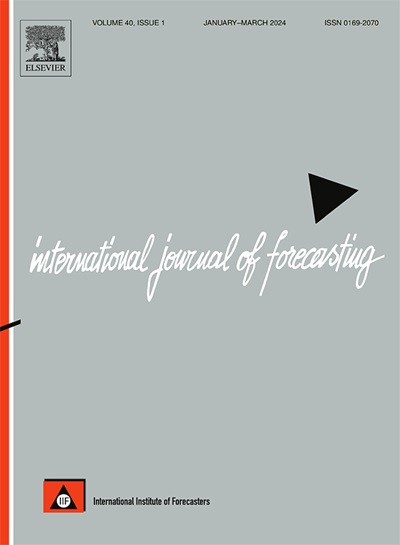个人远见:概念、操作化和相关关系
IF 7.1
2区 经济学
Q1 ECONOMICS
引用次数: 0
摘要
对超级预测者的判断预测研究表明,个体的预测能力是不同的。然而,这项工作的基本概念侧重于准确性,并没有充分纳入预见的时间维度。我们将远见重新定义为准确预测世界未来状态的能力,随着时间的推移,准确性变得越来越重要。为了在预测比赛中实现预见性,我们提出了各种严格适当的评分规则,并使用模拟研究和现实世界的预测数据将它们与现有的评分规则进行比较,这些预测数据由9694名预测员在四年地缘政治预测比赛的498个问题上的414,168个分数组成。结果表明,线性时间加权Brier分数应该是预见性的默认操作化,而先前研究提出的概率训练和团队干预可能不会像我们概念化的那样提高预见性。我们通过澄清预测的概念、操作和相关关系,为判断预测的研究做出贡献。本文章由计算机程序翻译,如有差异,请以英文原文为准。
Individual foresight: Concept, operationalization, and correlates
Judgmental forecasting research on superforecasters has demonstrated that individuals differ in their foresight. However, the concept underlying this work focuses on accuracy and does not fully incorporate the time dimension of foresight. We reconceptualize foresight as the ability to predict future states of the world accurately, where accuracy becomes continuously more important over time. To operationalize foresight in forecasting tournaments, we propose various strictly proper scoring rules and compare them with existing scoring rules using a simulation study and real-world forecasting data consisting of 414,168 scores for 9694 forecasters on 498 questions from a four-year geopolitical forecasting tournament. The results suggest that the linear time-weighted Brier score should be the default operationalization of foresight and that probability training and teaming interventions as proposed by prior research may not improve foresight as we conceptualize it. We contribute to judgmental forecasting research by clarifying the concept, operationalization, and correlates of foresight.
求助全文
通过发布文献求助,成功后即可免费获取论文全文。
去求助
来源期刊

International Journal of Forecasting
Multiple-
CiteScore
17.10
自引率
11.40%
发文量
189
审稿时长
77 days
期刊介绍:
The International Journal of Forecasting is a leading journal in its field that publishes high quality refereed papers. It aims to bridge the gap between theory and practice, making forecasting useful and relevant for decision and policy makers. The journal places strong emphasis on empirical studies, evaluation activities, implementation research, and improving the practice of forecasting. It welcomes various points of view and encourages debate to find solutions to field-related problems. The journal is the official publication of the International Institute of Forecasters (IIF) and is indexed in Sociological Abstracts, Journal of Economic Literature, Statistical Theory and Method Abstracts, INSPEC, Current Contents, UMI Data Courier, RePEc, Academic Journal Guide, CIS, IAOR, and Social Sciences Citation Index.
 求助内容:
求助内容: 应助结果提醒方式:
应助结果提醒方式:


